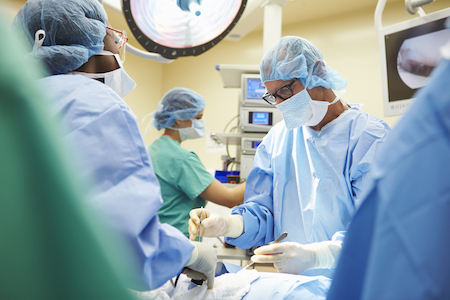 Weight loss surgery is a life-changing decision that requires careful planning and preparation. Understanding the recovery process is crucial for anyone considering bariatric surgery. This guide will provide an overview of the recovery timeline, what to expect post-surgery, and how to resume daily activities.
Weight loss surgery is a life-changing decision that requires careful planning and preparation. Understanding the recovery process is crucial for anyone considering bariatric surgery. This guide will provide an overview of the recovery timeline, what to expect post-surgery, and how to resume daily activities.
It should be noted that no two patients are alike and recovery time and the weight you lose may be different than others. These are general guidelines, and in most cases, hold true. However, a consultation with your surgeon will help find any factors that may disrupt your timeline or find if special care is needed.
How Long Does Weight Loss Surgery Take?
In most cases, bariatric surgery takes a few hours and you’ll be able to get up and walk around shortly thereafter. However, you’ll be held overnight for observation as a precautionary measure. The duration of weight loss surgery depends on the type of weight loss surgery being performed and the patient’s general health. Here’s a general idea:
- Gastric Bypass Surgery: Typically takes about 2-4 hours.
- Gastric Sleeve Surgery: Usually completed in 1-2 hours.
- Adjustable Gastric Banding: Generally takes around 30 minutes to 1 hour.
- Duodenal Switch: Can take 3-5 hours due to its complexity.
With laparoscopic surgeries, recovery is much faster than with open surgeries. Instead of one large incision, laparoscopic gastric bypass for example uses several small incisions to perform the procedure, which are much faster to close and heal.
The Recovery Process
The recovery time for weight-loss surgery is relatively quick, at least when it comes to going home or being able to move around. In a few days, you should be able to resume normal day-to-day activities, such as going to the store or moving around the home. More strenuous activity will require a few more weeks.
Immediate Post-Surgery Recovery
Hospital Stay
Most patients stay in the hospital for at least one night, and up to three days, after surgery, depending on the type of procedure and individual health factors. During this time, medical staff will monitor your recovery, manage pain, and help you start with small sips of clear liquids.
Pain Management
Pain and discomfort are common after surgery, but they can be managed with prescription pain medications. Most patients report significant improvement in pain within a few days.
Initial Diet
Your diet will progress from clear liquids to full liquids, pureed foods, and eventually soft foods over the first few weeks. It’s important to follow your surgeon’s dietary guidelines closely.
First Few Weeks After Surgery
Rest and Recovery
During the first week at home, rest is essential. Avoid strenuous activities and focus on allowing your body to heal. Gentle walking is encouraged to promote circulation and prevent blood clots.
Hydration
Staying hydrated is crucial. Aim to drink at least 64 ounces of water daily, taking small sips throughout the day.
Follow-Up Appointments
Regular follow-up appointments will be scheduled (in person/online/over the phone) to monitor your progress and address any concerns. These visits are critical to ensure a smooth recovery.
Resuming Daily Activities
 Returning to Work
Returning to Work
Most patients can return to light work within 1-2 weeks after surgery, depending on their job. If your job involves physical labor, you may need more time off, typically around 4-6 weeks.
Physical Activity
Gradually reintroduce physical activity. Start with short walks and slowly increase the duration and intensity as your body allows. Avoid heavy lifting and strenuous exercises for at least 4-6 weeks. We also recommend holding off on weight training for at least six months to a year.
Driving
You can usually resume driving once you are no longer taking pain medications and feel comfortable behind the wheel, generally around 1-2 weeks post-surgery.
Long-Term Lifestyle Changes
Diet and Nutrition
Post-surgery, your diet will be significantly different. You’ll need to focus on:
- Protein Intake: You be able to eat solid food after 4-6 weeks. Ensure you’re getting enough protein to support healing and muscle maintenance. In the case of a duodenal switch, part of the small intestine is bypassed, which means a side effect is the absorption of food and nutrients is lessened.
- Vitamin and Mineral Supplements: Due to reduced food intake and absorption, you’ll need supplements to prevent deficiencies for the rest of your life.
- Hydration: Continue to prioritize hydration.
Exercise
- Regular physical activity is essential for maintaining weight loss and overall health. Incorporate a mix of cardiovascular exercises, strength training, and flexibility exercises into your routine. Aim for at least 150 minutes of moderate-intensity exercise per week.
FAQs About Recovery After Weight Loss Surgery
How long will I be in the hospital after weight loss surgery?
Most patients stay in the hospital for 1-3 days, depending on the type of surgery and individual recovery.
When can I return to work after weight loss surgery?
Many patients return to light work within 1-2 weeks. Physically demanding jobs may require 4-6 weeks of recovery.
What kind of diet will I need to follow after surgery?
Your diet will progress from clear liquids to full liquids, pureed foods, and soft foods over the first few weeks. You’ll need to follow a high-protein, low-sugar diet and take vitamin and mineral supplements.
How soon can I start exercising after surgery?
Gentle walking is encouraged right after surgery. More strenuous exercises should be avoided for at least 6-8 weeks. Gradually increase your activity level as you heal.
What are some common complications after weight loss surgery?
Complications can include infection, blood clots, and nutrient deficiencies. Regular follow-ups with your healthcare team can help monitor and address any issues promptly.
The Effectiveness of Weight Loss Surgery
Weight loss procedures, such as gastric bypass or gastric sleeve, are recognized as the most effective way to lose a significant amount of excess weight and keep it off long-term. These procedures not only restrict food intake but also alter gut hormones that affect hunger and satiety.
Combined with a proper diet and regular exercise, weight loss surgery offers a comprehensive solution for those struggling with severe obesity and long-term weight loss. At WeightWise, we are dedicated to providing personalized, comprehensive care to help our patients achieve their weight loss goals.
Ready to take the first step towards a healthier, happier you? Take our no-obligation assessment or sign up for our free online seminar. Our team is here to answer your questions and provide the support you need to succeed on your weight loss journey.
By choosing WeightWise, you’re choosing a team of dedicated professionals committed to helping you achieve your weight loss goals and improve your overall health. Let us help you transform your life through weight loss surgery and comprehensive care.
